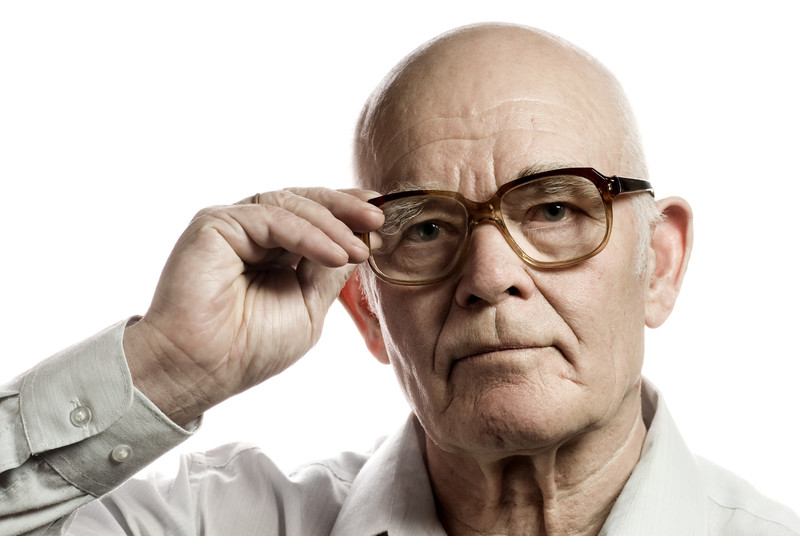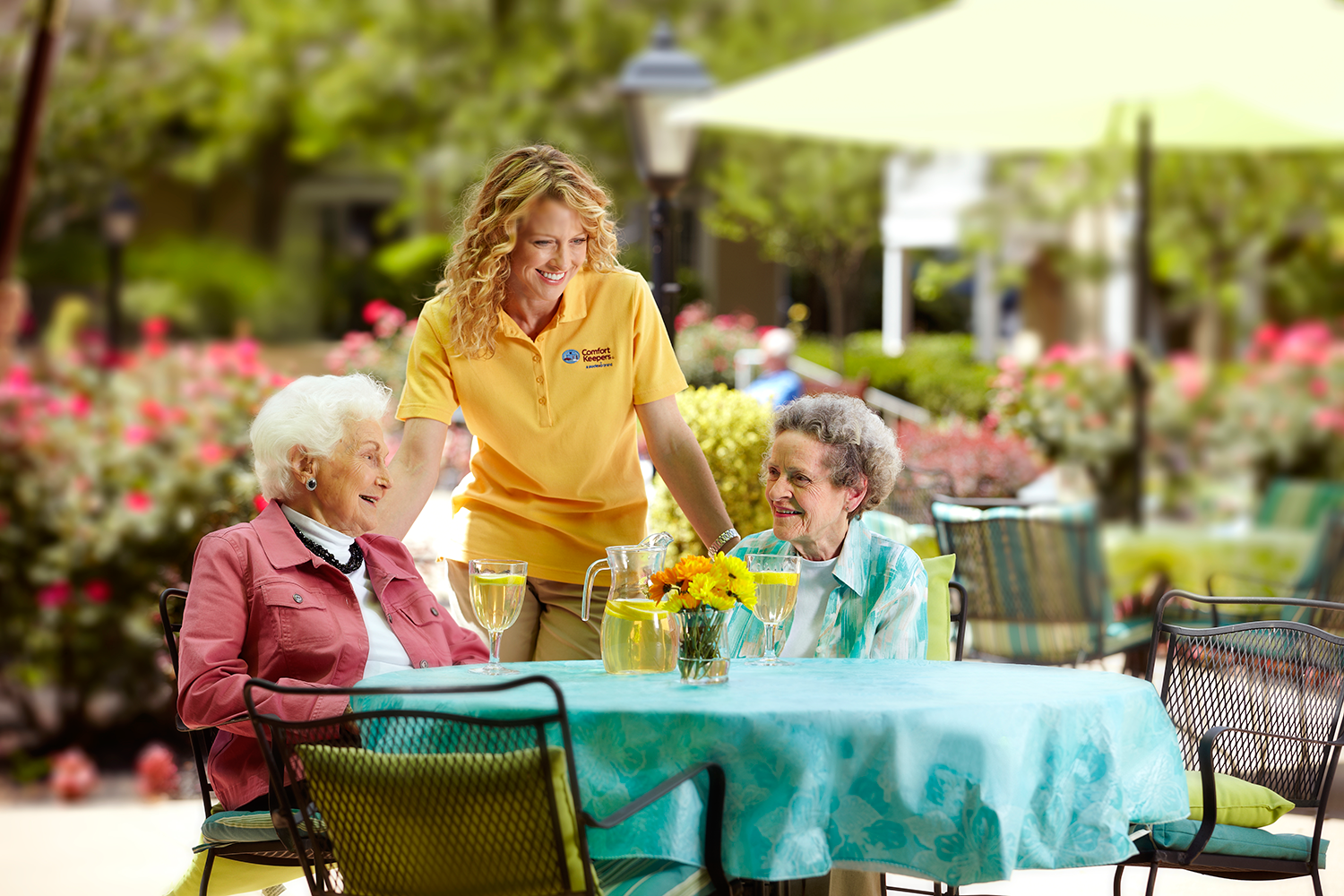Glaucoma Facts for Seniors
Edmonton Senior Health | January 28, 2018

What Every Senior in Edmonton, AB, Needs to Know About Eye Health and Glaucoma
Glaucoma Facts for Seniors | Glaucoma is a painless disease, but serious because it can damage the optic nerve. This nerve allows us to see and connects the eye to the brain. Glaucoma often afflicts senior citizens and is a leading cause of blindness. Learn about the risks, symptoms, causes, and treatments for glaucoma from in-home care experts.
Glaucoma Factors for Seniors
#1. Risk Factors of Glaucoma:
The largest risk influencing the development of glaucoma is high eye pressure. Old age and previous eye injuries are a risk, as well as thin corneas and nearsightedness. Other risk factors include a family history of glaucoma, shock, or anemia, and use of steroids.
#2. Symptoms of Glaucoma:
There are five separate types of glaucoma, but open-angle glaucoma is the most common. There are no easily identifiable symptoms, except a gradual loss of vision. Older adults should make sure to visit the ophthalmologist every year so that their vision changes can be monitored.
Narrow-angle glaucoma is another type, and it is considered a medical emergency. Symptoms can include severe eye pain, redness, blurred vision, seeing halos around lights, sickness, nausea, and vomiting. If seniors experience these, they should alert their family or in-home care provider and get to a doctor immediately.
#3. Causes of Glaucoma:
Glaucoma usually develops when the fluid inside the eye fails to drain properly. Due to increased fluid buildup, the eye pressure increases and can hinder the optic nerve. Over time, this can lead to vision loss and blindness. Glaucoma can also affect those with normal eye pressure if they have a weak optic nerve with poor blood circulation.
#4. Glaucoma Treatments:
Glaucoma can be treated in several ways. Most commonly, they will treat glaucoma with eye drops, which reduce the fluid in the eye and increase flow outward. Stinging, red, and irritable eyes are some symptoms of glaucoma eye drops. Seniors’ doctors should be informed about any medication allergies and can prescribe an oral medication when eye drops do not work.
Glaucoma and Laser Surgery for Seniors
Seniors with glaucoma can turn to laser surgery for treatment to increase eye fluid flow for those with open-angle glaucoma, and to stop the blockage of fluid for those with angle-closure glaucoma. Laser surgeries to treat glaucoma include trabeculoplasty, cyclophotocoagulation, and iridotomy.
Glaucoma and Lifestyle Changes for Seniors
Glaucoma and general eye health can improve with lifestyle changes and home remedies. In-home care specialists recommend that seniors eat a healthy diet rich in omega-3 fatty acids and dark leafy green vegetables, sleep well with their heads elevated, and exercise frequently.
Is Glaucoma Preventable?
Glaucoma is not a preventable disease, but with an early diagnosis and treatment, it can be put under control. Seniors who visit their ophthalmologistannually will have a reduced risk of blindness and a higher quality of life with healthy eyes as they age.
Comfort Keepers® Edmonton is Proud to Offer a Wide Range of Home Senior Care Services
Our trained caregivers will ensure your loved one is comfortable, independent and safe in their home. On top of that, we will also aim to enhance their overall health, quality of life and general happiness.
Top-Notch Home Healthcare for Seniors in Edmonton, Alberta
Comfort Keepers of Edmonton offers a broader range of senior care services. We offer retirement care, respite care, senior care, companionship care, end-of-life care, post-surgery care, palliative care, personal care, and senior living transition services. If you are concerned about the health and well-being of your aging loved ones, we can provide 24-hour care and more!
Helping Seniors Age-in-Place with Companionship Care and Interactive Caregiving™
Empathetic care starts in the heart and allows us to meet our client’s needs. Our trained caregivers are selected with one specific quality in mind, empathy. We strive to stimulate our clients emotionally, mentally and socially, thus enhancing their overall quality of life.
Our Interactive Caregiving™ provides a system of care that addresses companionship, safety, nutrition, mind, body, and activities of daily living (ADLs). The system increases seniors’ sense of well-being, independence and companionship by focusing on Senior Mind, Senior Body, Senior Nutrition, and Senior Safety.
Affordable and Client-Directed Homecare is Available for Qualifying Albertans
Comfort Keepers® Edmonton is an Approved Service Provider for the Client Directed Homecare Invoicing (CDHCI) Program Offered by Alberta Health Services.
What is the Client Directed Home Care Invoicing Program (CDHCI)?
CDHCI is a great program provided by Alberta Health Services (AHS), allowing clients to choose an approved agency like Comfort Keepers Edmonton for Personal Care, Respite Care and Homemaking needs. The chosen agency can then bill AHS directly for services rendered for approved hours through Alberta Blue Cross. Read more about the program HERE.
Accredited Home Care Edmonton
Comfort Keepers® Edmonton was awarded the “Accredited with Exemplary Standing” seal by Accreditation Canada. This honour demonstrates Comfort Keepers’ commitment to offering safe, high-quality home care to its senior clients in Edmonton, AB.
To learn more about senior in-home care in Edmonton, contact the Comfort Keepers® office. Our service territory includes Edmonton, Devon, Sherwood Park, Stony Plain and surrounding areas, contact the Comfort Keepers Edmonton office at 780-465-4665.
Individualized Home Care Options
Long-Term Home Care, 24 Hour Home Care & Short Term Care Options Customized for You







